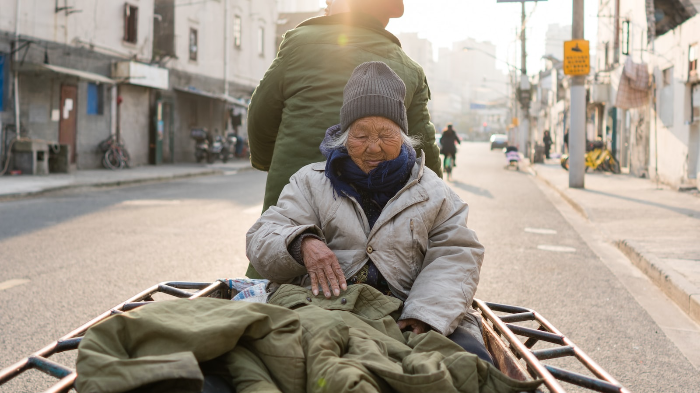[Aging and Geriatrics] The biological changes associated with aging
(노화와 관련된 생물학적 변화)
Introduction(서론)
Aging is a natural and inevitable process that affects everyone, with biological changes being a significant component. Although aging affects each individual differently, it is essential to understand the common biological changes that occur as people age. This blog will explore the biological changes associated with aging and their effects on the body.
(노화는 모든 사람에게 영향을 미치는 자연스럽고 피할 수 없는 과정이며, 생물학적 변화가 중요한 요소이다. 노화는 개인마다 다르게 영향을 미치지만, 나이가 들면서 발생하는 일반적인 생물학적 변화를 이해하는 것은 필수적이다. 이 블로그에서는 노화와 관련된 생물학적 변화와 그것이 신체에 미치는 영향을 살펴보려 한다.)

| * more info " The biological changes associated with aging " Web site-1 (여기클릭 ☜) |
| * more info " The biological changes associated with aging " Web site-2 (여기클릭 ☜) |
Changes in the Skin(피부의 변화)
The skin is one of the most visible organs affected by aging. As people age, the skin becomes thinner, less elastic, and drier. This thinning is due to the reduced production of collagen and elastin, the proteins that give skin its strength and elasticity. The reduced elasticity can lead to wrinkles and sagging. In addition, the skin's ability to retain moisture decreases, leading to dryness and itching.
(피부는 노화의 영향을 가장 눈에 띄게 받는 기관 중 하나이다. 나이가 들면 피부가 얇아지고 탄력이 떨어지며 건조해진다. 피부가 얇아지는 것은 피부에 힘과 탄력을 주는 단백질인 콜라겐과 엘라스틴의 생산이 감소하기 때문이다. 탄력이 감소하면 주름과 처짐이 생길 수 있다. 또한 피부의 수분 보유 능력이 감소하여 건조함과 가려움증을 유발할 수 있다.)

| * more info " The biological changes associated with aging " Web site-3 (여기클릭 ☜) |
| * more info " The biological changes associated with aging " Web site-4 (여기클릭 ☜) |
Changes in the Muscles and Bones(근육과 뼈의 변화)
Muscle mass and bone density decrease as people age. This decrease in muscle mass is known as sarcopenia, and it begins in the 30s and accelerates after the age of 75. As a result, older people may experience weakness and difficulty with mobility. Additionally, bone density decreases, which can increase the risk of fractures and osteoporosis.
(근육량과 골밀도는 나이가 들면서 감소한다. 이러한 근육량 감소는 근감소증으로 알려져 있으며, 30대에 시작되어 75세 이후에 가속화된다. 그 결과 노인은 힘이 약해지고 거동이 어려워질 수 있다. 또한 골밀도가 감소하여 골절 및 골다공증의 위험이 높아질 수 있다.)

| * more info " The biological changes associated with aging " Web site-5 (여기클릭 ☜) |
| * more info " The biological changes associated with aging " Web site-6 (여기클릭 ☜) |
Changes in the Cardiovascular System(심혈관계의 변화)
The cardiovascular system is also affected by aging. Blood vessels become less elastic, and blood flow decreases. The heart muscle also weakens, and the heart rate may decrease. These changes can lead to an increased risk of heart disease, stroke, and other cardiovascular problems.
(심혈관계도 노화의 영향을 받는다. 혈관의 탄력이 떨어지고 혈류량이 감소한다. 심장 근육도 약해지고 심박수가 감소할 수 있다. 이러한 변화는 심장병, 뇌졸중 및 기타 심혈관 질환의 위험을 증가시킬 수 있다.)

Changes in the Nervous System(신경계의 변화)
As people age, changes occur in the brain and nervous system. Brain cells shrink, and the connections between cells may be reduced, leading to cognitive decline. Additionally, the number of neurons in the brain decreases, which can affect memory, learning, and decision-making abilities. In addition, nerve cells outside the brain can also be affected, leading to reduced sensation and mobility.
(나이가 들면 뇌와 신경계에 변화가 생깁니다. 뇌 세포가 줄어들고 세포 간의 연결이 감소하여 인지 기능이 저하될 수 있다. 또한 뇌의 뉴런 수가 감소하여 기억력, 학습 및 의사 결정 능력에 영향을 미칠 수 있다. 또한 뇌 외부의 신경 세포도 영향을 받아 감각과 이동성이 저하될 수 있다.)

Changes in the Respiratory System(호흡기 계통의 변화)
Aging can also affect the respiratory system. The lungs become less efficient, and the chest wall becomes stiffer. These changes can lead to a reduced ability to breathe deeply, making older people more susceptible to respiratory infections and other lung conditions.
(노화는 호흡기에도 영향을 미칠 수 있다. 폐의 효율성이 떨어지고 흉벽이 딱딱해진다. 이러한 변화는 심호흡 능력 저하로 이어져 노인은 호흡기 감염 및 기타 폐 질환에 더 취약해질 수 있다.)

Changes in the Digestive System(소화 기관의 변화)
The digestive system is also affected by aging. The amount of saliva produced decreases, making it harder to chew and swallow food. The digestive tract becomes less efficient, which can lead to constipation and other gastrointestinal issues.
(소화 기관도 노화의 영향을 받는다. 침 분비량이 감소하여 음식을 씹고 삼키기가 더 어려워진다. 소화관의 효율성이 떨어지면서 변비 및 기타 위장 문제가 발생할 수 있다.)

Conclusion(결론)
Aging is a natural process that affects everyone differently. However, some common biological changes occur as people age, affecting the skin, muscles, bones, cardiovascular system, nervous system, respiratory system, and digestive system. Understanding these changes is essential for older people to maintain their health and quality of life. With this understanding, older people can make lifestyle changes and seek medical intervention as needed to mitigate the effects of aging.
(노화는 모든 사람에게 다르게 영향을 미치는 자연스러운 과정이다. 하지만 나이가 들면서 피부, 근육, 뼈, 심혈관계, 신경계, 호흡기, 소화기 계통에 영향을 미치는 몇 가지 일반적인 생물학적 변화가 발생한다. 이러한 변화를 이해하는 것은 노년층의 건강과 삶의 질을 유지하는 데 필수적이다. 이러한 이해를 바탕으로 노년층은 노화의 영향을 완화하기 위해 라이프스타일을 바꾸고 필요에 따라 의학적 개입을 받을 수 있다.)

댓글